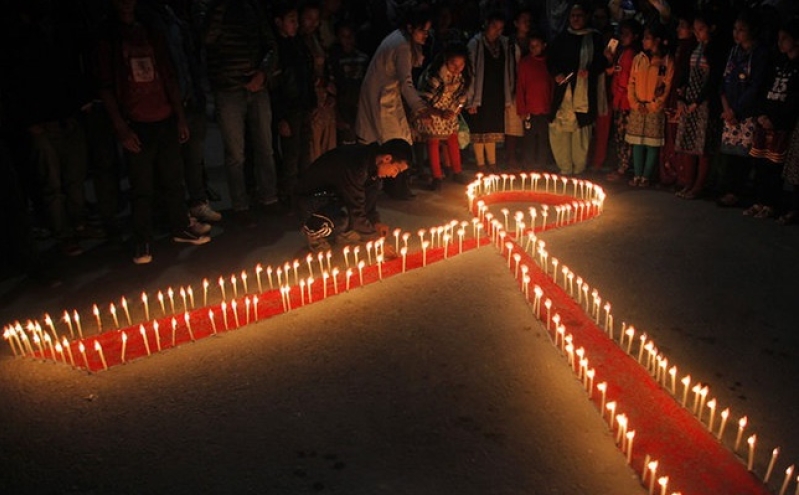
The estimated number of adolescents dying of AIDS in the Asia Pacific region has more than doubled since 2005, experts said on Monday, warning of a "hidden epidemic".
UNICEF urged Asian countries to improve teenagers' access to testing, saying many young people do not know their HIV status because of parental consent requirements for tests.
The Asia Pacific region has made enormous strides against HIV/AIDS in the adult population, with a 31 percent drop in new HIV infections between 2000 and 2014, and 28 percent decline in AIDS-related deaths between 2005 and 2014.
However, one in seven new infections in the region last year was among 15 to 19-year-olds, and the estimated number of AIDS-related deaths for adolescents aged 10 to 19 has shot up 110 percent to 6,600 in 2014, from 3,100 in 2005, a U.N. report said on Monday.
At-risk adolescent groups include gay and transgender youth, injecting drug users, and people who buy and sell sex.
"This is the first, definitive report on adolescents - teenagers between 10 and 19," said Wing-Sie Cheng, UNICEF regional adviser on HIV and AIDS.
"This report has been a culmination of more than two years of efforts to try to get all available data to help us understand the picture of the epidemic facing them. We're talking about a hidden epidemic."
The report said an estimated 50,000 adolescents aged 15 to 19 were infected with HIV last year.
Across the region, an estimated 220,000 youths between 10 and 19 are living with HIV, with cities such as Bangkok, Hanoi and Jakarta being the "hubs of new infections", it said.
The 10 hardest hit countries are India, Indonesia, Thailand, Myanmar, Vietnam, China, Cambodia, the Philippines, Papua New Guinea and Pakistan.
But the report said it is likely that less than a third of HIV-positive adolescents receive life-prolonging antiretroviral therapy.
Surveillance in the region is problematic because in many countries teenagers are not allowed to get HIV tests unless their parents sign consent forms.
Only 10 Asia Pacific countries allow young people to access HIV testing and related services without parental permission.
"Many do not want their parents to know that they've had sex. That puts a barrier between them and testing," Wing-Sie said. "If they are turned away from testing, they may be carrying the HIV virus without knowing."
Niluka Perera, project officer for the Youth Voices Count network for young gay men and transgender people, called for greater use of social media, apps, smartphones and tablets to reach young people.
The Asia Pacific Coalition on Male Sexual Health (Apcom), which launched a drive in Bangkok last year to encourage young gay men to get tested, announced last week that it had received a £795,195 ($1.19 million) grant from the UK-based Elton John AIDS Foundation to expand the campaign to cities in Indonesia, the Philippines and Vietnam.







